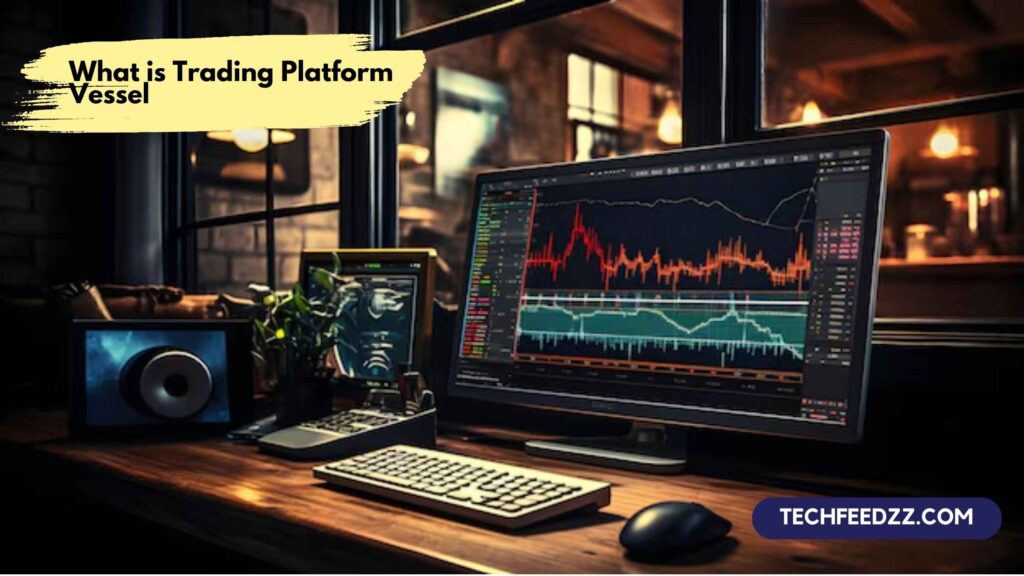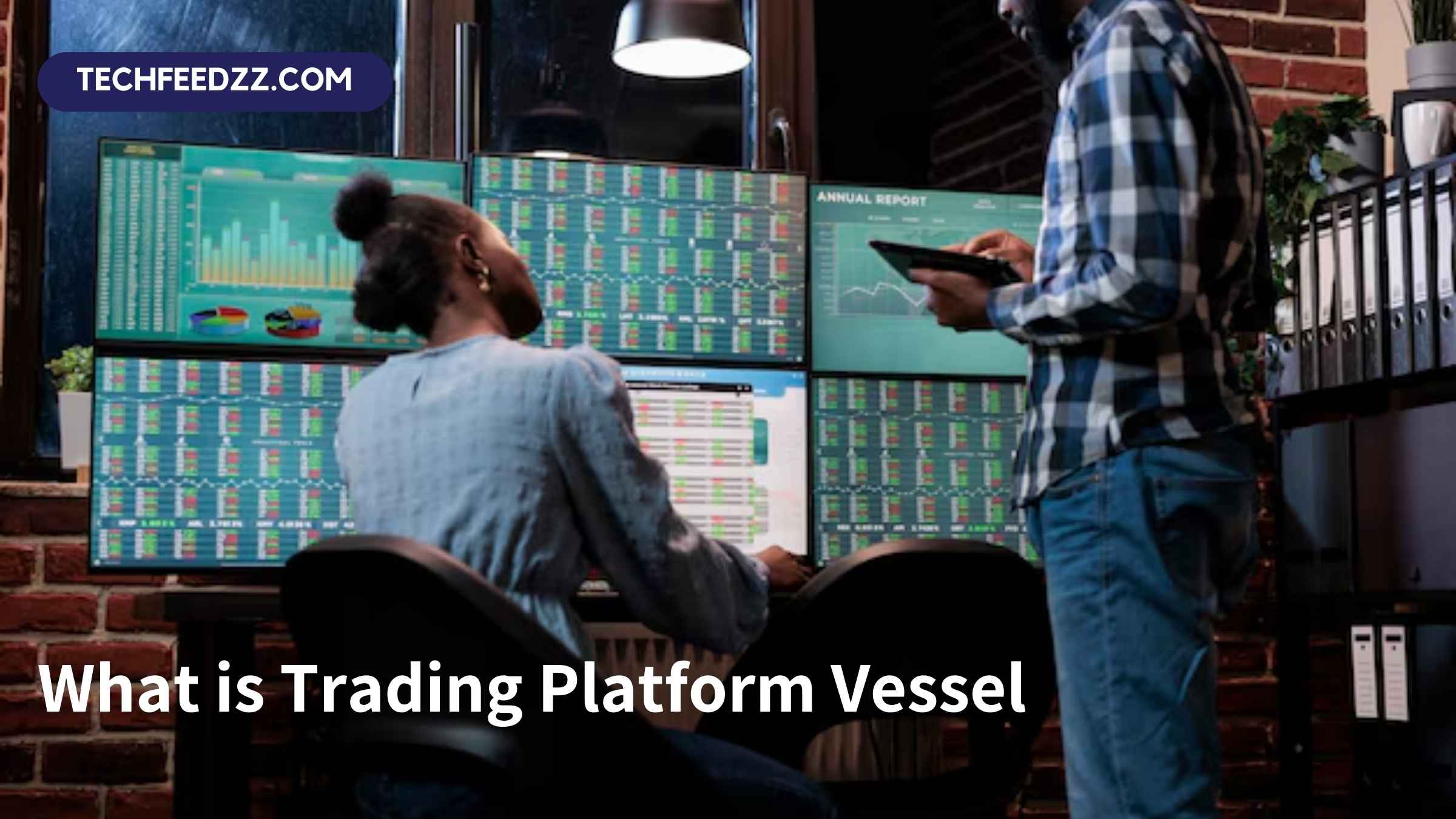Trading Platform Vessel It refers to a mobile offshore unit utilized by oil and gas industries, renewable energy, and commodities trading. There are trading platform vessels compared to fixed platforms; these can move towards various locations, thus providing flexibility in trading operations.
Use: These vessels assist in trading and logistics activities that cannot be directly accessed, such as deep-water oil rigs or offshore wind farms.
Sectors: Primarily used in oil and gas exploration. They are also used by the energy, logistics, and trading sectors.
Types of Trading Platform Vessels
There are different types of trading platform vessels, each type made for a specific purpose.
Main Types:
1. Drillships: The drilling takes place in the deep water of the oil and gas industries.
2. Floating Production Storage and Offloading (FPSO) Vessels: These store and process crude oil.
3. Commodity Trading Vessels: These are for commodity trading and storing purposes. Examples include LNG, crude oil, or grains.
4. Wind Turbine Installation Vessels: Specifically designed for renewable energy projects.
How Do Trading Platform Vessels Operate?
Trading platform vessels operate as self-contained units with advanced technology to carry out tasks in remote offshore locations.
Operational Insights:
Mobility: Unlike fixed platforms, they can be relocated to areas of need, ensuring operational flexibility.
Autonomy: Equipped with onboard power generation, navigation, and living quarters, they can perform for extended periods independently.
Key Features of Contemporary Trading Platform Vessels
Contemporary trading platform vessels are engineering wonders that include many advanced features.
Notable Features: State-of-the-art navigation: Accurate positioning by GPS and satellite systems. – Automation: AI-based operational efficiency.
Safety Systems: Fire suppression, emergency evacuation, and advanced weather monitoring technologies.
Key Benefits of Using Trading Platform Vessels
These vessels are integral to offshore trading operations for various reasons.
Key Benefits:
Flexibility: They can operate in multiple locations as per demand.
Cost-Effectiveness: Eliminates the need for building permanent offshore platforms.
Scalability: Capable of supporting small to large-scale operations.
Common Challenges in Managing Trading Platform Vessels
While advantageous, these vessels come with their own set of challenges.
Main Challenges:
High Operational Costs: Maintaining these vessels requires significant investment.
Technical Issues: Complex machinery can lead to breakdowns.
Environmental Risks: Oil spills or emissions cause harm to marine ecosystems.
Vessels for Trading Platforms versus Offshore Platforms
Although vessels for trading platforms and offshore platforms perform the same function, they have differences in several ways.
Environmental Impact of Trading Platform Vessels
These vessels come with both positive and negative implications for the environment.
Overview of Impact:
Negative: There are greenhouse gas emissions, as well as the possibility of oil spills.
Positive: Renewable energy sources minimize carbon footprints.
Best Companies Making Trading Platform Vessels
Few companies lead in making trading platform vessels with sleek designs.
Market Leading Manufacturers:
Hyundai Heavy Industries: Leading company for advanced FPSOs.
Keppel Offshore & Marine: Offers customized solutions.
Samsung Heavy Industries: Innovators in renewable energy vessels.
Future Trends in Trading Platform Vessels
The industry is rapidly evolving, with new trends shaping its future.
Trends to Watch:
Green Technologies: Solar and wind-powered vessels.
AI Integration: Enhanced automation and predictive maintenance.
Smaller, Efficient Units: Compact designs for niche operations.
Regulations Governing Trading Platform Vessels
Regulatory compliance is critical for operating trading platform vessels.
Key Regulations:
Safety Standards: International Maritime Organization (IMO) rules.
Environmental Norms: Emission control areas and MARPOL standards.
Local Compliance: Adhering to country-specific maritime laws.
Maintenance and Safety of Trading Platform Vessels
Proper maintenance will protect these vessels for long and ensure safety.
Best Practices:
Routine inspections: Regular examination of wear and tear signs.
Crew Training: The team must always be ready for emergencies.
Technology Upgrades: Use of the latest safety technologies.
How to Invest in Trading Platform Vessels
It can be highly profitable for those who are familiar with the industry if they invest in trading platform vessels.
Investment Insights:
Know the market. Know what demand exists for vessels in various industries.
The risk assessment will be economic and environmental.
You will have to collaborate with marine consultants and trading companies.
AI and IoT in Trading Platform Vessels
AI and IoT are revolutionizing the trading platform vessel industry.
Applications:
Real-Time Monitoring: IoT sensors track vessel performance.
Predictive Maintenance: AI predicts machinery breakdowns.
Route Optimization: AI suggests the most efficient paths.
Case Studies: Successful Trading Platform Vessels

Highlighting successful projects can inspire and educate readers.
Example:
FPSO “Egina”: With Total operating it, it stands as one of the most efficient oil processing vessels in the world. Wind Installation Vessel “Brave Tern”: Specialized to install offshore wind turbines.
Trading Platform Vessels for Renewable Energy
With renewable energy in the forefront, trading platform vessels play a major role.
Role in Renewables:
Offshore Wind Farms: Installing and maintaining turbines.
Floating Solar Farms: These will be in distant places where no one lives.
Economic Effects of Trading Platform Vessels on Local Markets
These ships heavily affect the local economy.
Positive Effects:
Employment: It gives people work.
Infrastructure: It helps to expand industries that support the shipping industries.
Development of Trading Platform Vessels
The development of trading platform vessels has been that of innovation and strength.
Timeline:
Early 20th Century: Basic floating platforms.
Mid-20th Century: Introduction of FPSOs.
21st Century: Advanced AI-driven vessels.
Technological Innovations in Trading Platform Vessels
Cutting-edge technology is transforming these vessels.
Recent Innovations:
Dynamic Positioning Systems: For stable operation in rough seas.
Hybrid Power Systems: Combining diesel and renewable energy.
How Trading Platform Vessels Respond to Global Crises
These vessels play a critical role during crises like pandemics or oil spills.
Examples:
Pandemic Support: Used for emergency healthcare.
Oil Spill Response: Transporting cleanup equipment quickly.
Why Zero-Knowledge Proofs Matter in Trading
As with trading, zero-knowledge proofs (ZKPs) have become a revolutionary concept, especially in financial security, private, and efficient. Here are some ways these cryptographic methods allow one party to verify that a statement is correct without disclosing any more details. Such a capability comes with tremendous implications for trade-orientated platforms where trusting transparency and confidentiality are the paramount concerns.
Why Zero-Knowledge Proofs Matter in Trading
Zero-knowledge proofs (ZKPs), much like trading, have evolved to be a revolutionary concept, especially for financial security, private, and efficient. Here are the ways these cryptographic methods enable one party to verify that a statement is correct without disclosing more details. Such a capability comes with tremendous implications for trade-orientated platforms where trusting transparency and confidentiality are paramount concerns.
What Are Zero-Knowledge Proofs?
Zero-knowledge proofs are mathematical techniques that allow the verification of a fact without revealing the fact itself. This makes them particularly useful in scenarios where privacy is paramount.
Key Characteristics
Completeness: If the statement is true, a verifier will be convinced by the proof.
Soundness: The verifier cannot be made to believe something false.
Zero-Knowledge: The verifier is not given any information regarding the statement under consideration during verification.
Applications of Zero-Knowledge Proofs in Trading
Enhanced Privacy for the Traders
Trading sometimes deals with sensitive information, like history about trades, portfolio information, or even personal information. ZKPs help verify procedures without revealing sensitive data.
Example: A trader can prove AML compliance without disclosing details of the transactions.
ZKPs can also make Know Your Customer processes more efficient. Rather than sharing entire identity documents, traders can prove their identity or eligibility for specific trades without exposing sensitive information.
Benefit: This minimizes the risks of data breaches and identity theft.
Confidentiality in Transactions
Zero-knowledge proofs ensure that transactional details remain confidential while still providing proof of legitimacy.
Example in Crypto Trading: Traders can prove ownership of funds or asset balances without disclosing exact amounts, enhancing security on blockchain-based platforms.
Increased Trust in Trading Platforms
By integrating ZKPs, trading platforms can demonstrate adherence to regulations and proper functioning of algorithms without exposing proprietary data or trade secrets.
Impact: Builds trust among users, investors, and regulators.
Fraud Prevention
Zero-knowledge proofs can mitigate fraud by allowing validation of transactions, compliance, or ownership claims without revealing exploitable details.
Example: Detecting fake orders in a marketplace without disclosing the trading strategy behind them.
Benefits of Zero-Knowledge Proofs in Trading
Improved Data Security
ZKPs significantly minimize the leak of sensitive information during verification or compliance checks.
Compliance Without Oversharing
Traders and platforms can respect strict financial regulations like AML and KYC in a way that respects confidentiality over data.
Efficiency and Scalability
ZKP protocols help streamline processes such as auditing and transaction verification, which become more efficient and less resource-consumptive.
Democratizing Access
By ensuring privacy, ZKPs encourage participation from individuals or entities who may otherwise hesitate to trade due to confidentiality concerns.
Challenges of Implementing Zero-Knowledge Proofs
1. Complexity: Developing and deploying ZKP-based systems requires advanced cryptographic knowledge.
2. Performance Overheads: Although improving, some ZKP implementations may introduce latency in high-frequency trading environments.
3. Acceptance: The regulators could take their time to settle with, and understand well, ZKP-based compliance solutions well.
The Future of Trading Using Zero-Knowledge Proof
Using zero-knowledge proofs for trading is all set for growth as more advanced technologies come in and when demand rises for privacy and security features. The most significant developments include the following:
Blockchain Integrative: ZKPs have a lot to do with the increasing decentralized finance (DeFi), doing secure and private transactions at publicly available blockchains.
Real-Time Auditing will need ZKPs since verification of compliance is conducted with no human intervention, through platform-based systems.
International compliances will be easier if these ZKPs eliminate the presentation of sensitive trade or finance documents.
How Vessel is Changing DeFi Trading
What is Vessel in DeFi?
Vessel is the next generation of DeFi protocol meant to make trading more streamlined across decentralized platforms. It strives to create a secure, user-friendly, and scalable trading environment that will address common bottlenecks such as the high gas fee, less liquidity, and fractured markets. Vessel utilizes Layer 2 scaling, smart contracts, and innovative systems for the management of liquidity that will result in seamless trading.
Vessel DeFi Trading Key Characteristics
Cross-Chain Functionality
A vessel can be described as a vessel that connects various blockchains. This makes it possible for any trader to communicate with and exchange assets on various other blockchains such as Ethereum, Binance Smart Chain, and Solana.
Impact:
Eliminates the use of multiple wallets.
Easy transfer of assets, and seamless arbitrage activities.
Liquidity Aggregation
One of Vessel’s standout features is its ability to aggregate liquidity from various DeFi platforms, ensuring users get the best prices and minimal slippage.
Benefit:
Solves liquidity fragmentation by pooling resources across decentralized exchanges (DEXs).
Enhances trading efficiency for large-volume trades.
Reduced Transaction Costs
Using Layer 2 solutions, Vessel reduces gas fees and executes transactions faster, thereby rendering DeFi trading more cost-effective.
Example: Traders on the Ethereum network often suffer high costs in terms of gas fees in cases of network congestion. Vessel routes the trade through Layer 2 networks, which drastically reduce costs.
Advanced Trading Tools
Vessel combines some of the following tools:
Limit orders.
Stop-loss features.
On-chain analytics for following trends.
These features have empowered traders with more strategic control over their operations than the tools of CEX, yet not at the cost of DeFi platforms.
Improved Security
Vessel uses audited smart contracts and zero-knowledge proof mechanisms to achieve transaction security while keeping confidentiality.
Pros:
Avoid exploits such as front-running and rug pulls.
Offers users confidence in executing trades without risks of data leaks.
Challenges in DeFi Trading That Vessel Addresses
Liquidity Shortfalls
Many DeFi platforms struggle with liquidity fragmentation, leading to inefficiencies and high slippage for traders. Vessel solves this by aggregating liquidity across chains and platforms.
Complex User Experience
DeFi trading platforms often require users to navigate multiple wallets, interfaces, and protocols. Vessel simplifies this by providing an intuitive interface that integrates all necessary tools in one place.
Scalability Issues
High network congestion on Layer 1 chains like Ethereum hampers DeFi growth. Vessel’s adoption of Layer 2 scaling ensures faster transaction processing without compromising decentralization.
Transparency and Trust
Vessel utilizes blockchain’s inherent transparency to offer real-time trade tracking, ensuring accountability and trustworthiness in all transactions.
Benefits of Vessel in DeFi Trading
Democratized Access
Vessel lowers barriers to entry for retail traders by offering affordable transaction costs and an easy-to-use platform.
Better Trading Opportunities
The incorporation of modern trading tools will allow users to perform complex trading techniques, which include arbitrage and algorithmic trading, not accessible on decentralized exchanges.
Scalability for Growing Markets
As the DeFi market grows, Vessel’s scalable architecture ensures the platform can support high-volume trading without experiencing network slowing down.
Privacy and Security
With features like zero-knowledge proofs, Vessel protects user data while maintaining regulatory compliance where required.
Examples of How Vessel Is Transforming DeFi
Cross-Chain Arbitrage
A trader can buy a token on one blockchain at a lower price and sell it on another blockchain at a higher price, seamlessly facilitated by Vessel’s cross-chain functionality.
Yield Optimization
Users can benefit from the liquidity aggregation by Vessel to get the highest yield farming opportunities on all platforms, without needing to manually surf through different protocols.
Institutional Adoption
Institutional applications can consider Vessel with its sophisticated trading tools and transparency to gain access to efficient and safe DeFi trading.
Future Developments of Vessel in Trading in DeFi
1. Onboarding Emerging Blockchains: Integration with newly emerging blockchains will strengthen Vessel as a leading trading platform across various chains.
2. AI-Powered Trading:** Inclusion of AI tools in predictive analytics and strategy optimization will further upgrade the experience for users.
3. Regulatory Compliance:** Vessel should be integrating regulatory frameworks; balancing decentralization with strict legal compliance will help its wider adoption.
FAQS
What is the general purpose of a trading platform vessel?
The trading platform vessels act as mobile operational units to serve purposes in offshore drilling and the installation of renewable energy. They offer commodity trading logistics in very remote and difficult-to-reach places.
How is a trading platform vessel differentiated from a fixed Offshore platform?
The main difference lies in their mobility. The trading platform vessels can be easily moved from one place to another while the fixed offshore platform is put in a single location at a specific site.
What are the main challenges of using trading platform vessels?
Some challenges include:
High operational costs.
Complex technical maintenance requirements.
Environmental risks like potential oil spills or emissions.
Are trading platform vessels environmentally friendly?
Though old ships carry a higher impact on the environment owing to emission and oil leakage risks, modern ships comprise green technologies in terms of hybrid power systems and emission reduction. These vessels aim to significantly reduce their ecological footprint.
What are some of the distinctive features of modern trading platform vessels?
Modern ships carry the following features:
Dynamic positioning systems.
Artificial intelligence and Internet of Things technologies.
Integrate advanced safety systems and renewable energy.
Are trading platform vessels capable of supporting renewable energy projects?
Absolutely. Trading platform vessels play a vital role in renewable energy, especially in installing offshore wind turbines and floating solar farms.
What is the future of trading platform vessels?
The future looks bright with Increasing green technologies. Much more AI and IoT as the vessel is fully controlled.
Smaller, more efficient vessels for niche markets.
Conclusion
Trading platform vessels are very essential in the global energy and trading industries. Their mobility, technological advancements, and ability to adapt to various operational needs make them a crucial part of industries like oil and gas, renewable energy, and commodities trading.
Read More About New Post…..




5